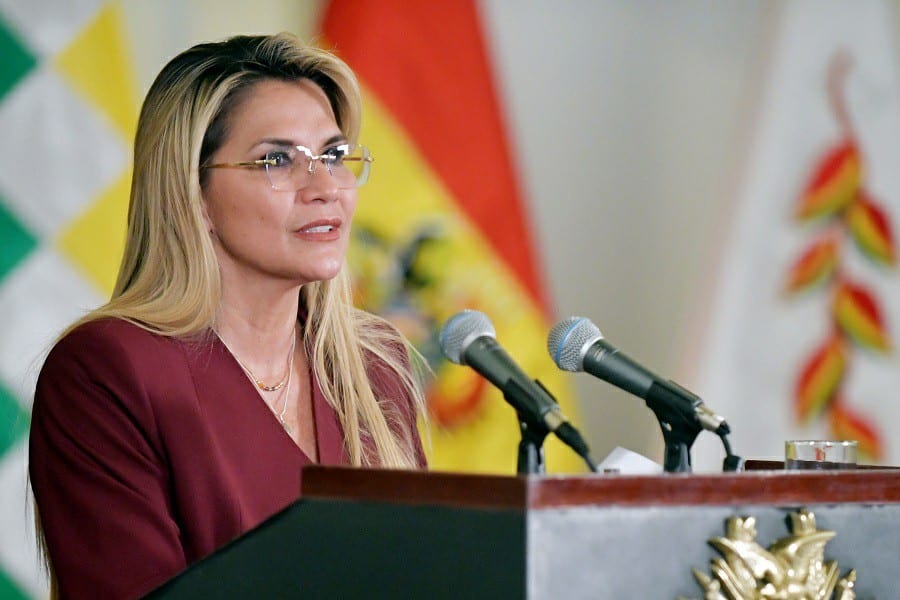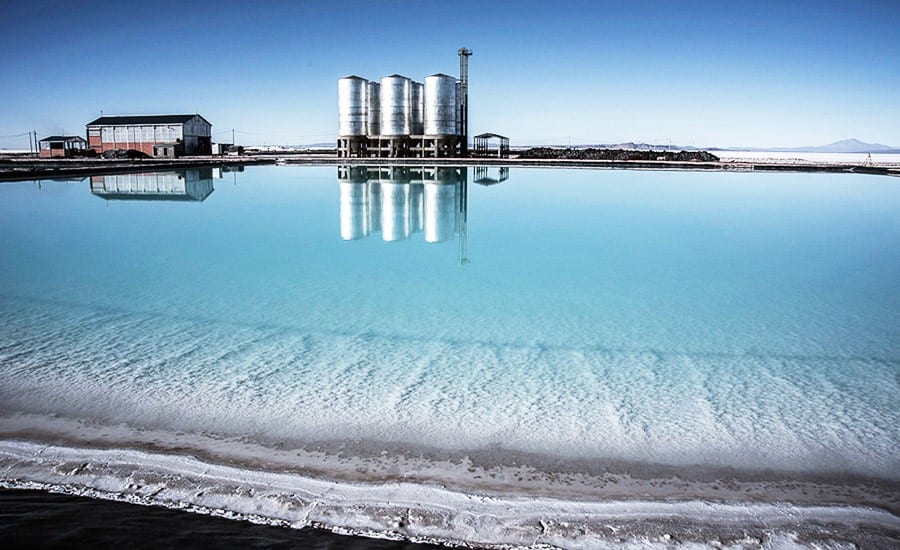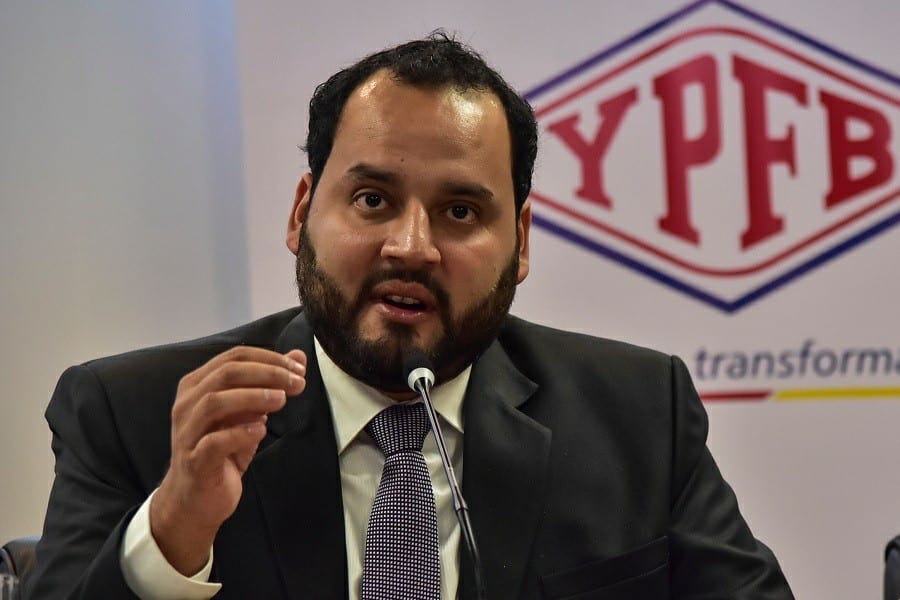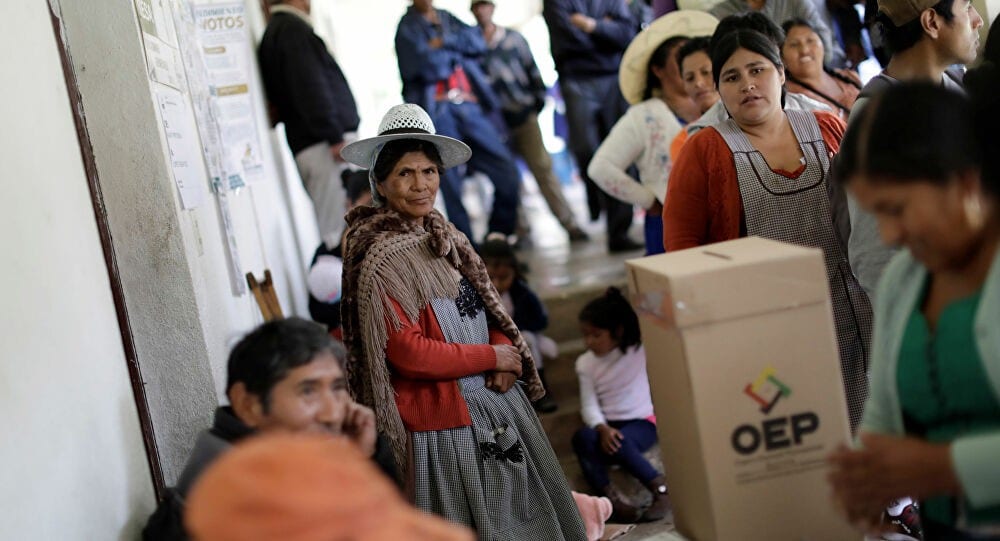In early May, Bolivia celebrated 6 months after the political crisis, as a result of which Evo Morales resigned and left the country. Nearly 200 days ago, the transitional government led by the Acting President Jeanine Áñez came to power. More than a dozen cases of corruption, high-profile resignations of civil servants, the sanitary crisis caused by the global outbreak of the COVID-19 virus, and the adoption of new conflicting laws that sharply criticize regional and international leaders are just some of the topics that concern Bolivians today. Has the political crisis in Bolivia ended? What corruption cases is the whole country discussing today?
Jeanine Áñez (Spanish – Jeanine Áñez Chávez) took office as head of state through constitutional succession on November 12, 2019 after the resignation of Evo Morales (Spanish – Juan Evo Morales Ayma). From that moment a little more than 6 months passed. Today, Bolivian newspapers continue to unearth new affairs that cast a shadow over the activities of the Interim Acting president. She promised to restore peace to the country, call elections, and also “reveal the corruption chains of the past government”, in addition, to combat “abuses of power in the use of state resources in favor of a political party,” which was noted in her speech on January 22, in the Day of Plurinational State.

However, by that time, two complaints had been registered regarding abuse of power in the Vice-Ministry of Communication Policy and the Ministry of Presidential Affairs. Danilo Romano (Spanish – Danilo Romano) was appointed by the Minister of Communication, at that time Roxana Lizarraga (Spanish – Roxana Lizárraga Vera), to the post of Vice-Minister of Communication Policy on November 21, 2019, and a week later he resigned. In his Twitter account on November 28, he noted that he had to resign from this public office under pressure from the Minister of Presidential Affairs Jerjes Justiniano (Spanish – Jerjes Enrique Justiniano Atalá). Following a complaint by the former Vice-Minister of Communication Policy against J. Justiniano, he received another denunciation, this time for interfering in the “La manada” case related to the massive rape of a minor in the Santa Cruz department last year. The Attorney Nancy Carrasco has reported interference, abuse of office, and even death threats from his lawyers. Then this situation led to the removal of Jerjes Justiniano and the immediate appointment on December 3 of Yerko Nuñez (Spanish – Yerko Martin Núñez Negrette) as the new Head of the Presidential Administration.
Similarly, on January 17, 2020, the Special Crime Detachment (Spanish – Fuerza Especial de Lucha Contra el Crimen, abbreviated – FELCC) for the first time arrested an official of the Ministry of Mining and Metallurgy for collecting money in exchange for appointment to the positions in this government institution. According to a police report, an adviser was identified as the defendant for malpractice and corruption.

Turning to other corruption cases, it is worth recalling several cases related to state-owned companies such as YPFB, YLB, and Entel, in which cases of inefficient economic management were registered. In January, the Minister of Energies, Rodrigo Guzman (Spanish – Alvaro Rodrigo Guzmán Collao), decided to remove Juan Carlos Zuleta from the position of Executive Chairman of the company “Bolivian Lithium Fields” (Spanish – Yacimientos de Litio Boliviano, abbr. – YLB), replacing him with the Potosi economist Gunnar Valda Vargas. Zuleta took office on January 8, and a few days before he worked for a month, he was fired as a result of “pressure” from the government of Germany, which intended to renew the alliance with the state-owned company YLB and the German corporation ACI Systems (ACISA) to continue the contract for the industrialization of lithium from the salt flat (Salar de Uyuni).
The payment of two bills of 36,440 boliviano and 18,712 boliviano for accommodation and additional services at a five-star hotel in La Paz, as well as sponsorship in the amount of 160,000 US dollars for the race driver and the cancellation of compensation in the amount of 868,998 boliviano in favor of 13 officials, became only some of the violations that led to the February 7 dismissal of Elio Montes Chávez from the post of General Director of the National Telecommunications Company Entel, after working for 82 days in this position. Montes left the country on February 12, writing on his “Twitter” account that he acted within the law and became a victim of harassment in the workplace.

Another high-profile corruption scandal was the case related to the personnel “turnover” in the leadership of the largest state energy corporation. On May 7, as a result of criticism as part of the implementation of direct fixed-term contracts, Herland Javier Soliz was removed from the post of Chairman of the state-owned company “Bolivian Oil Fields” (Spanish – Yacimientos Petrolíferos Fiscales Bolivianos, abbr. – YPFB). The appeals mainly concerned alleged violations and price increases in the purchase of fuel, food and insurance. The predecessor of Soliz was José Luis Rivero Sandoval, who remained in this position for 29 days until he announced that the state-owned company YPFB had gone bankrupt. After this scandal, cases of illegal payments and commissions charged for promotions were immediately revealed in three ministries.
The inefficient use of public funds is also on the list of cases of a similar nature with respect to the Minister of Government and the current Minister of Presidential Affaires: Arturo Murillo (Spanish – Carlos Arturo Murillo Prijic) and Yerko Nuñez, respectively, who subsequently admitted that private individuals traveled by Bolivian Air Force (Spanish – Fuerza Aérea Boliviana, abbr. – FAB) for unofficial purposes. We are talking about the son of a friend of the President Áñez and the famous model from the Department of Beni. Murillo stated that Mauricio Raña (the son of the Deputy Gina María Torres) used the plane to “accompany her mother,” who was having difficulty moving and was supposed to arrive at the parliamentary session in La Paz. Nuñez also admitted that the former beauty queen traveled on a “solidarity flight” from Santa Rosa to La Paz due to her “poor state of health”.
A little more than a week ago, on May 11, it became known that two Vice Ministers from the Ministry of Defense had resigned as a result of complaints about alleged corruption allegations related to violations in the purchase of equipment to combat the COVID-19 virus and personal payments, according to the note, published on the website of the Spanish company EDEFA S.A.
Today, the Bolivian press continues to investigate new cases involving representatives of the transitional government. In the context of tough quarantine measures, Bolivia is preparing for the General Elections, which, according to the law adopted on May 1, should be held within the established 90-day period. Currently, all regional political analysts are trying to predict the outcome of the election race, however, it is very obvious that corruption scandals will affect the outcome of the electoral process. Would the “Movement to Socialism” (Spanish – Movimiento al Socialismo, MAS) be able to take revenge or would the transitional government consolidate its position will be shown in the coming months.


